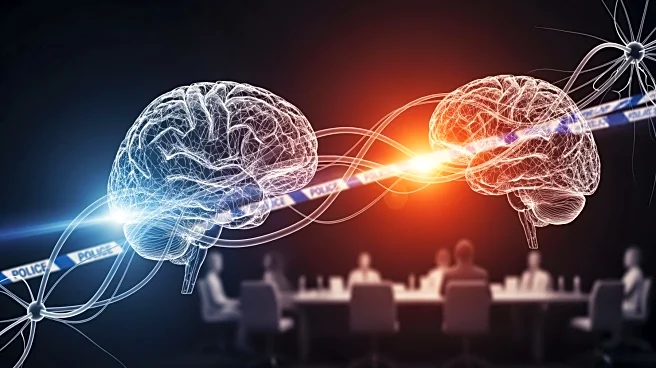What's Happening?
A recent genome-wide association study (GWAS) has explored the genetic architecture of the human corpus callosum (CC) and its subregions, revealing significant heritability estimates for its area and thickness.
The study utilized data from the UK Biobank and the Adolescent Brain Cognitive Development studies, employing a UNet-based automated segmentation tool called SMACC for precise measurement. The research highlights the genetic influences on CC morphometry and its potential links to neuropsychiatric disorders. The study's findings suggest that specific genetic variants may play a role in the development of these disorders, although no definitive OCD-linked genes have been identified yet.
Why It's Important?
The findings of this study are significant as they provide insights into the genetic underpinnings of the corpus callosum, a critical brain structure involved in interhemispheric communication. Understanding the genetic factors influencing CC morphometry could have implications for diagnosing and treating neuropsychiatric disorders such as OCD, schizophrenia, and autism. The study's use of advanced imaging and genetic analysis techniques underscores the potential for personalized medicine approaches in mental health, potentially leading to more targeted therapies and interventions.
What's Next?
Future research may focus on further identifying specific genetic variants associated with CC morphometry and their direct links to neuropsychiatric conditions. This could involve larger cohort studies and the integration of additional genetic and environmental data. The development of more sophisticated imaging and genetic analysis tools may also enhance the precision of such studies, potentially leading to breakthroughs in understanding the biological basis of mental health disorders.
Beyond the Headlines
The study raises ethical considerations regarding genetic research in mental health, particularly concerning privacy and the potential for genetic discrimination. It also highlights the need for interdisciplinary collaboration between geneticists, neuroscientists, and mental health professionals to translate these findings into clinical practice effectively.










